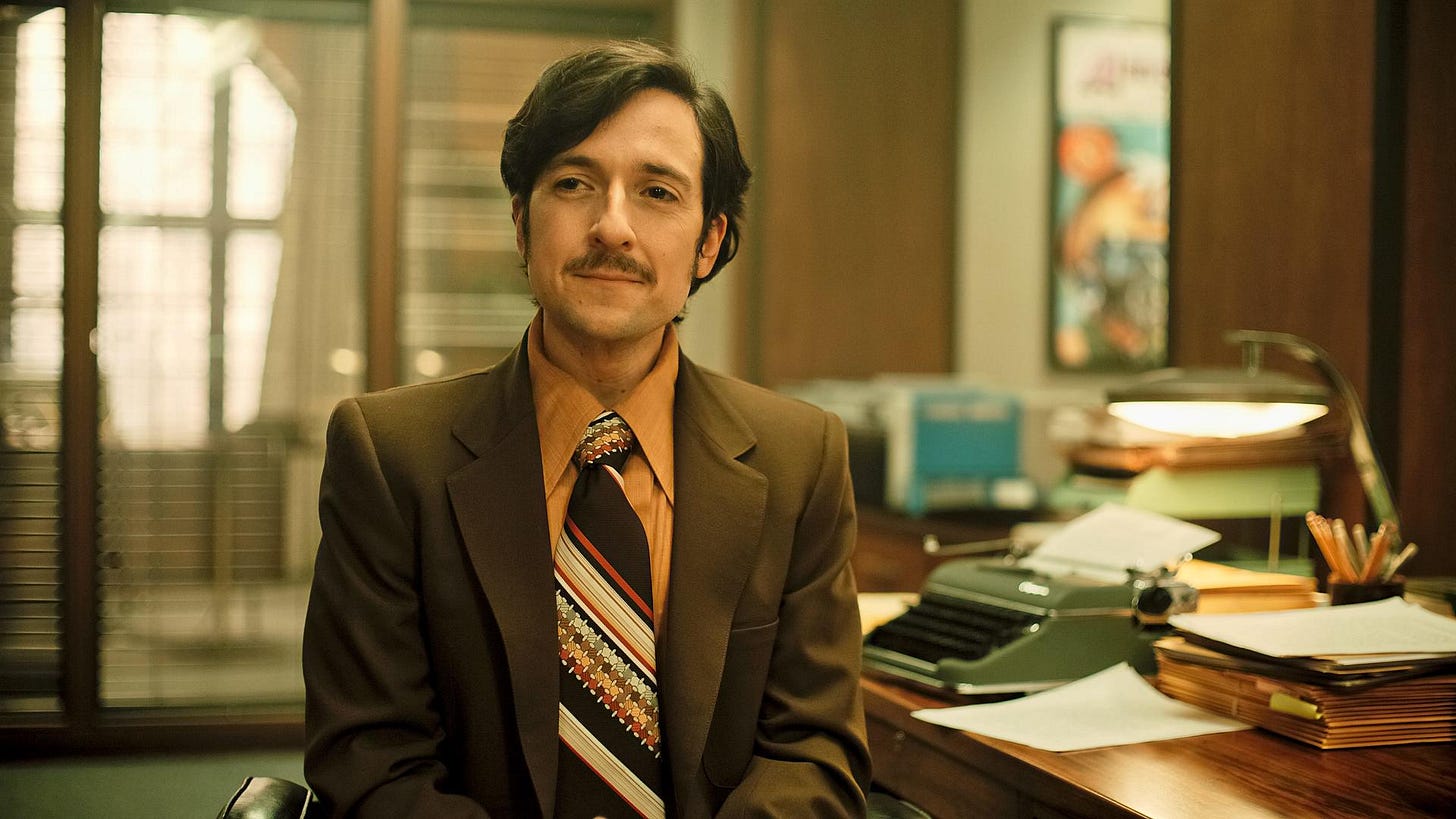An Ode to C.W. Longbottom
Mythic Quest's backstory to a supporting character shows the show's depth.
Though usually a quirky comedy about the day-to-day at a gaming studio behind a MMORPG in the vein of World of Warcraft or Final Fantasy XIV, both seasons so far, AppleTV+’s Mythic Quest has spent an episode exploring the fictional history of the game industry in the show. The first was largely unconnected to the larger plot, but this season chose to explore the origins of C.W. Longbottom (F. Murray Abraham), the man responsible for writing the lore of the game who is reminiscent of real life figures like George R.R. Martin.
Making an unlovable character sympathetic with finesse is always worthy of applause, and, in the rather matter-of-factly titled “Backstory,” they succeed in taking a character depicted for a season-and-a-half as bitter, washed up, and sexist and helping you realize why he wound up where he did.
The episode shows a younger him portrayed by Josh Brener as one of a group of three co-workers in the 1970s working at a science fiction and fantasy publishing company, brushing shoulders with the likes of Ursula Le Guin, Ray Bradbury, and Isaac Asimov. The group works together to polish each other’s stories to try to become the next authors to attain such acclaim.
Though much of the story revolves around the genesis of Longbottom’s Nebula Award- winning book and his inability to ever match it, we see him make insights about the future of storytelling through gaming decades ahead of their time — all because he sees a game of Pong.
The episode is a tragedy — as much a tragedy as its spiritual predecessor in Season 1, "A Dark Quiet Death,” was as well. However, we are spared from the full depths of the emotional turmoil by knowing a lot about Longbottom’s ultimate fate, one in which he might not be happy, but he at least is vindicated.
That’s not to say either model of doing these sorts of episodes set in the past is better — if there’s a season 3, it will be interesting to see which route they take, if they make such an episode at all. But much of the emotional payoff this time around comes from watching the episode just posted, "Peter,” so named after one of the two colleagues from “Backstory.”
Having written a series with a whopping nineteen successful books, the now gaunt Peter reconciles with his old friend. They, as characters, are given closure just as we are as well. Though the ending of the story arc is. deeply bittersweet, the turmoil of the previous episode and the detour it takes us away from the main plot feel worth it.
Do I like Longbottom now? That’s a resounding no. One of the longstanding gimmicks of his character is that he misgenders Rachel (Ashly Birch), a presumably cisgender lesbian gameplay tester. We are still left with a man emblematic of the problem with men like him in so many fields.
But we deeply understand him. He becomes more than just a dispenser for comedically well-timed lines that reflect the profound generational gap between him and the rest of the cast. The show has spent a lot of time humanizing characters like Rachel or the lead engineer, Poppy (Charlotte Nicdao) — whose frenetically anxious but brilliant energy in tech leadership roles reminds me of myself.
Elements like these are what elevates Mythic Quest beyond the level of being something akin to today’s 30 Rock — witty and sharp but shying away from real depth, embracing its characters being Flanderized into joke dispensers. Where 30 Rock will make references to Jack’s work history as a kid that are too over-the-top to be believable, we are instead given an emotionally gripping tale of why our resident curmudgeon is the way he is.
This is a production team adept at working with characters who are terrible people. A lot of the creatives involved with It’s Always Sunny in Philadelphia work on the show — and Rob McElhenney aka Mac even stars as the game’s creative director, Ian. But one can’t help but wonder if it is not refreshing to at least have those terrible people help in the emotional growth of characters we actually respect as people.
The point of Sunny is they are all terrible people, and it works, but Mythic Quest leaves you rooting for the growth and success of characters like Rachel and Poppy — both well-written, flawed, but strong Asian characters in a time of rising hate crimes and when a depressing number of people cannot name a single famous Asian.
Though the kind of show that might seem appealing only to those who play MMORPGs, Mythic Quest is a hilarious comedy with heart and depth that has as much broad appeal as Game of Thrones — though hopefully with a more satisfying ending. By taking the risk of spending an entire episode exploring the decades-old past of a character easy to write off as a grumpy old drunk (and following up with payoff in the present!) the show demonstrates why, even if it is great comedy, it is also so much more than mere comedy.


